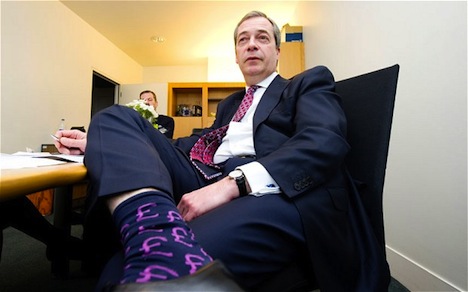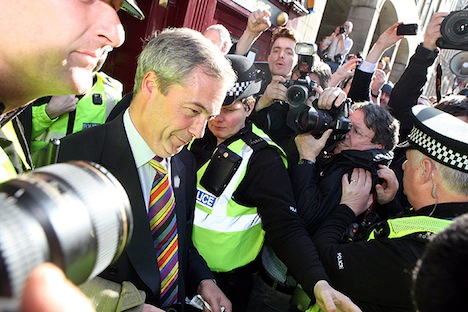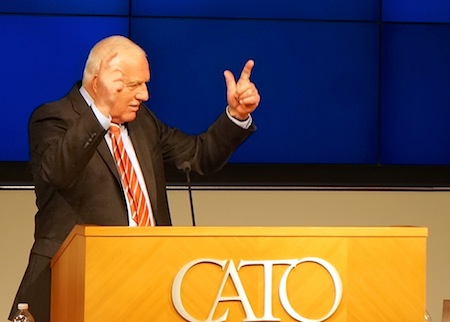9. European Union parliamentary elections, May 22-25.![]()
If for no other reason, the upcoming elections for the European Parliament will be the most important since direct EP elections began in 1979 because under the new Lisbon Treaty, it will be the European Parliament that decides who will become the next chair of the European Commission, the chief executive organ of the European Union (though German chancellor Angela Merkel has argued that the treaty’s language indicates that the Commission appointment need only ‘take into account’ the EP elections). In any event, it still means that early in 2014, each of the major cross-national party groupings within the European Parliament will designate their nominees to succeed José Manuel Barroso, the former center-right Portuguese prime minister who will step down in November 2014 after a decade heading the Commission.
The eight European Parliament will have 751 members, over 56% of whom will come from just six member-states: Germany (96), France (74), the United Kingdom (73), Italy (73), Spain (54) and Poland (51). Four states, Estonia, Malta, Luxembourg and Cyprus, will elect the minimum number of representatives (six).
Between 1979 and 1999, the Party of European Socialists (PES) and its predecessor was the largest group in the European Parliament. Its members include the major center-left socialist/social democratic parties of Austria, the Czech Republic, Denmark, France, Germany, Portugal, Spain and Sweden, and the labour parties of Ireland, Malta, The Netherlands and the United Kingdom.
Since 1999, however, the European People’s Party (EPP), a group of center-right and Christian democratic parties, have held the largest number of seats. In the most recent 2009 elections, the EPP won 265 seats to just 183 for the PES. The EPP’s members include the major Christian democratic parties in Benelux, the Austrian People’s Party, the French UMP, Germany’s Christian Democratic Union Greece’s New Democracy, Hungary’s Fidesz, Ireland’s centrist Fine Gael, Italy’s Forza Italia, Portugal’s Social Democratic Party, Poland’s Civic Platform, Spain’s People’s Party and Sweden’s Moderate Party.
The third-largest group, the Alliance of Liberals and Democrats for Europe Party (ALDE), contains includes most of Europe’s liberal parties, notably Belgium’s Open VLD, the Danish Venestre, Luxembourg’s newly elected Liberals, the Dutch VVD, the British Liberal Democrats, and Ireland’s Fianna Fáil.
Other groups include:
- the European Green Party (which includes essentially all of Europe’s green and ecological parties),
- the Party of the European Left (whose members include the German Die Linke and Greece’s SYRIZA),
- the slightly eurosceptic Alliance of European Conservatives and Reformists (whose members include the Czech Civic Democrats, the UK Conservatives and Poland’s Law and Justice Party),
- the Movement for a Europe of Liberties and Democracy, formed in 2009 as another slightly euroskeptic group (whose members includes Italy’s Northern League, the Danish People’s Party and the Finns Party), and
- the European Alliance for Freedom, formed in 2010 as a staunchly euroskeptic, far-right group (whose members include the French National Front, the Dutch Party of Freedom, the Flemish Vlaams Belang and Austria’s Freedom Party).
Although the EPP won’t determine its candidate for Commission president until a convention on March 6-7 and ALDE won’t determine its candidate until February 1, the PES has already nominated Martin Schulz, a member of Germany’s Social Democratic Party and president of the European Parliament since 2012. Polish prime minister Donald Tusk, Luxembourg’s Viviane Reding, the Commission’s vice president and current commissioner for justice, former Luxembourgish prime minister and Eurogroup chair Jean-Claude Juncker, former Latvian prime minister Valdis Dombrovskis, Lithuanian president Dalia Grybauskaitė, Swedish prime minister Frederik Reinfeldt and IMF managing director Christine Lagarde of France have all been touted as possible EPP candidates. ALDE will choose between former Belgian prime minister Guy Verhofstadt and Finland’s Olli Rehn, currently commissioner for economic and monetary affairs.
Herman Van Rompuy, former Belgian prime minister and the first president of the European Council, the council of European heads of state/government, will also step down at the end of 2014 after two 2.5-year terms in that position. The first EU high representative for foreign affairs and security policy, Catherine Ashton of the United Kingdom, is also likely to step down.
Given the tumult of the eurozone sovereign debt crisis, almost everyone expects that European voters may use the elections as an opportunity to register dissatisfaction with the direction of European governance. In particular, that could bode well for the stridently leftist MEP candidates — most notably in Greece, where SYRIZA (the Coalition of the Radical Left — Συνασπισμός Ριζοσπαστικής Αριστεράς) of Alexis Tsipras leads EP polls. It could also bode well for euroskeptic candidates — most notably in the United Kingdom, where Nigel Farage (pictured above) and his anti-EU United Kingdom Independence Party (UKIP) is competing for first place with the Conservative Party and the Labour Party in EP polls, and in France, where Marine Le Pen’s nationalist Front National (FN, National Front) leads EP polls.
Photo credit to Lucas Schifes.




